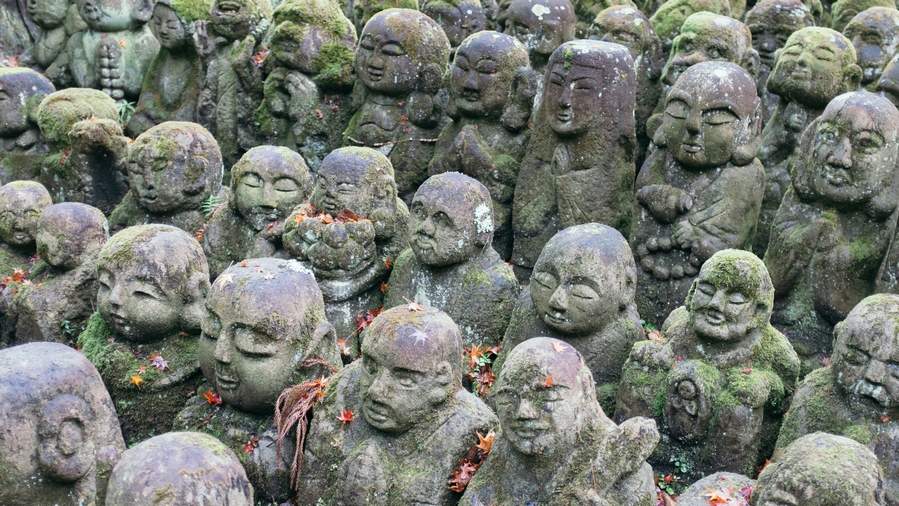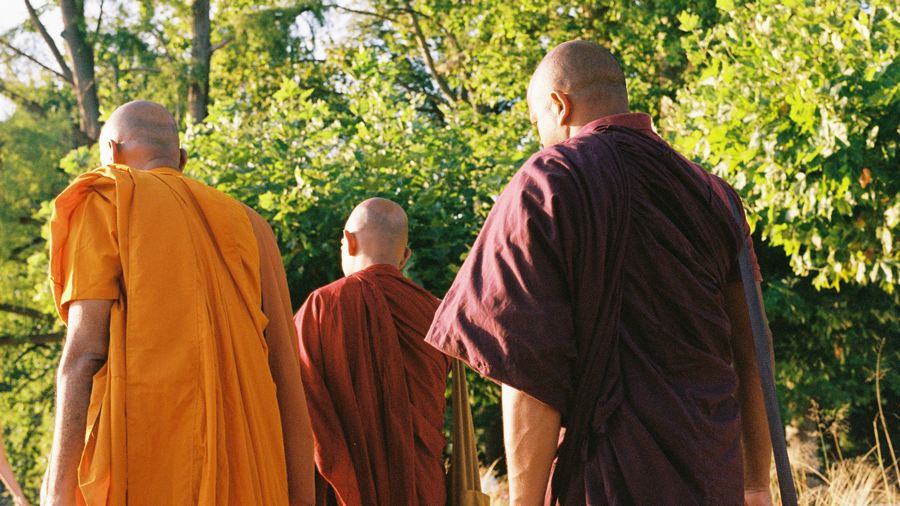Renouncing violence
for all living beings,
harming not even one of them,
you would not wish for offspring,
so how a companion?
Wander alone
like a rhinoceros.
For a person by nature entangled
there are affections;
on the heels of affection, this pain.
Seeing the drawback born of affection,
wander alone
like a rhinoceros.
One whose mind
is enmeshed in sympathy
for friends & companions,
neglects the goal.
Seeing this danger in intimacy,
wander alone
like a rhinoceros.
Like spreading bamboo,
entwined,
is concern for offspring & spouses.
Like a bamboo sprout,
unentangling,
wander alone
like a rhinoceros.
As a deer in the wilds,
unfettered,
goes for forage wherever it wants:
The observant person, valuing freedom,
wanders alone
like a rhinoceros.
In the midst of companions
—when staying at home,
when going out wandering—
you are prey to requests.
Valuing the freedom
that no one else covets,
wander alone
like a rhinoceros.
There is sporting & love
in the midst of companions,
& abundant love for offspring.
Feeling disgust
at the prospect of parting
from those who’d be dear,
wander alone
like a rhinoceros.
Without resistance in all four directions,
content with whatever you get,
enduring troubles without panic,
wander alone
like a rhinoceros.
They are hard to please,
some of those gone forth,
as well as those living the household life.
Being unconcerned
with the offspring of others,
wander alone
like a rhinoceros.
Cutting off the householder’s marks,
like a kovilara tree
that has shed its leaves,
the enlightened one, cutting all household ties,
wanders alone
like a rhinoceros.
If you gain an astute companion,
a fellow traveler, right-living, enlightened,
overcoming all troubles,
go with him, gratified,
mindful.
If you don’t gain an astute companion,
a fellow traveler, right-living & wise,
wander alone
like a king renouncing his kingdom,
like the elephant in the Mataṅga wilds,
[his herd].
We praise companionship
—yes!
Those on a par, or better,
should be chosen as friends.
If they’re not to be found,
living faultlessly,
wander alone
like a rhinoceros.
Seeing radiant bracelets of gold,
well-made by a smith,
clinking, clashing,
two on an arm,
wander alone
like a rhinoceros,
[Thinking:]
“In the same way,
if I were to live with another,
there would be conversation or attachment.”
Seeing this future danger,
wander alone
like a rhinoceros.
Because sensual pleasures,
elegant, honeyed, & charming,
bewitch the mind with their manifold forms—
seeing this drawback in sensual strings—
wander alone
like a rhinoceros.
“Calamity, tumor, misfortune,
disease, an arrow, a danger for me.”
Seeing this danger in sensual strings,
wander alone
like a rhinoceros.
Cold & heat, hunger & thirst,
wind & sun, horseflies & snakes:
Enduring all these, without exception,
wander alone
like a rhinoceros.
As a great white elephant,
with massive shoulders,
renouncing his herd,
lives in the wilds wherever he wants,
wander alone
like a rhinoceros.
“There’s no way
that one delighting in company
can touch even momentary release.”
Heeding the words
of the Kinsman of the Sun,
wander alone
like a rhinoceros.
Transcending the contortion of views,
the sure way attained,
the path gained,
[realizing:]
“Unled by others,
I have knowledge arisen,”
wander alone
like a rhinoceros.
With no greed, no deceit,
no thirst, no hypocrisy—
delusion & blemishes
blown away—
with no inclinations for all the world,
every world,
wander alone
like a rhinoceros.
Avoid the evil companion
disregarding the goal,
intent on the discordant way.
Don’t associate yourself
with someone heedless & hankering.
Wander alone
like a rhinoceros.
Consort with one who is learned,
who maintains the Dhamma,
a great & quick-witted friend.
Knowing the meanings,
subdue your perplexity,
[then] wander alone
like a rhinoceros.
Free from longing, finding no pleasure
in the world’s sport, ardor, or sensual bliss,
abstaining from adornment,
speaking the truth,
wander alone
like a rhinoceros.
Abandoning offspring, spouse,
father, mother,
riches, grain, relatives,
& sensual pleasures
altogether,
wander alone
like a rhinoceros.
“This is a bondage.
There’s little happiness here,
next to no enjoyment,
all the more suffering & pain.
This is a boil”:
Knowing this, circumspect,
wander alone
like a rhinoceros.
Shattering fetters,
like a fish in the water tearing a net,
like a fire not coming back to what’s burnt,
wander alone
like a rhinoceros.
Eyes downcast, not footloose,
senses guarded, with protected mind,
not soggy, not burning,
wander alone
like a rhinoceros.
Taking off the householder’s marks,
like a coral tree
that has shed its leaves,
going forth in the ochre robe,
wander alone
like a rhinoceros.
Showing no greed for flavors, not wanton,
going from house to house for alms
with mind unenmeshed in this family or that,
wander alone
like a rhinoceros.
Abandoning barriers to awareness,
expelling all defilements—all—
non-dependent, cutting aversion,
affection,
wander alone
like a rhinoceros.
Turning your back on pleasure & pain,
as earlier with sorrow & joy,
attaining pure
equanimity,
tranquility,
wander alone
like a rhinoceros.
With persistence aroused
for the highest goal’s attainment,
with mind unsmeared, not lazy in action,
firm in effort, with steadfastness & strength arisen,
wander alone
like a rhinoceros.
Not neglecting seclusion, jhāna,
constantly living the Dhamma
in line with the Dhamma,
comprehending the danger
in states of becoming,
wander alone
like a rhinoceros.
Intent on the ending of craving & heedful,
neither drooling nor dumb,
but learned, mindful,
—having reckoned the Dhamma—
certain & striving,
wander alone
like a rhinoceros.
Unstartled, like a lion at sounds.
Unsnared, like the wind in a net.
Unsmeared, like a lotus in water:
Wander alone
like a rhinoceros.
Like a lion—forceful, strong in fang,
living as a conqueror, the king of beasts—
resort to a solitary dwelling.
Wander alone
like a rhinoceros.
At the right time consorting
with the release through goodwill,
compassion,
empathetic joy,
equanimity,
unobstructed by all the world,
any world,
wander alone
like a rhinoceros.
Having let go of passion,
aversion,
delusion;
having shattered the fetters;
unfazed at the ending of life,
wander alone
like a rhinoceros.
People follow & associate
for a motive.
Friends without a motive these days
are rare.
They’re shrewd for their own ends, & impure.
Wander alone
like a rhinoceros.
Read this translation of Sn 1.3 A Rhinoceros by Bhikkhu Ṭhanissaro on DhammaTalks.org.Or read a different translation on SuttaCentral.net or DhammaTalks.org. Or listen on SC-Voice.net. Or explore the Pali on DigitalPaliReader.online.
Or read a translation in Afrikaans, Čeština, Deutsch, Français, Magyar, Bahasa Indonesia, Italiano, 日本語, မြန်မာဘာသာ, Nederlands, Norsk, Português, Русский, සිංහල, Slovenščina, or தமிழ். Learn how to find your language.

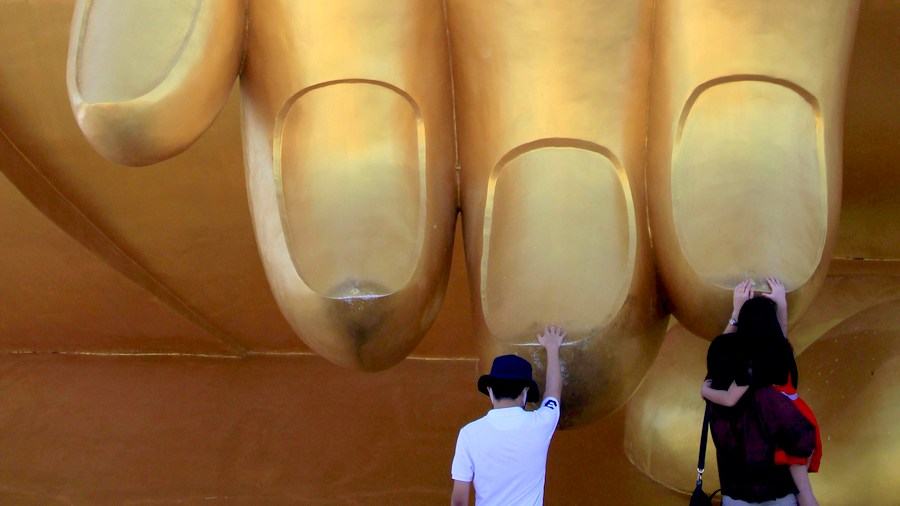
 Copyright: Creative Commons Zero (CC0) To the extent possible under law, Bhikkhu Sujato has waived all copyright and related or neighboring rights to his own translations on
Copyright: Creative Commons Zero (CC0) To the extent possible under law, Bhikkhu Sujato has waived all copyright and related or neighboring rights to his own translations on 
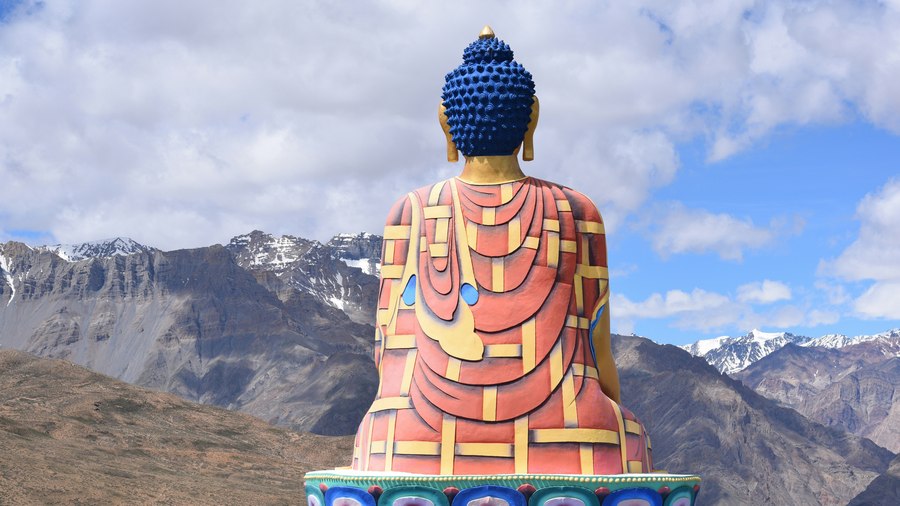







 All translations on this site by Bhikkhu Bodhi are licensed under a Creative Commons Attribution-NonCommercial-NoDerivs 3.0 Unported License.
Bhikkhu Bodhi, The Middle Length Discourses of the Buddha (Wisdom Publications, 2009), The Connected Discourses of the Buddha (Wisdom Publications, 2000), The Numerical Discourses of the Buddha (Wisdom Publications, 2012).
All translations on this site by Bhikkhu Bodhi are licensed under a Creative Commons Attribution-NonCommercial-NoDerivs 3.0 Unported License.
Bhikkhu Bodhi, The Middle Length Discourses of the Buddha (Wisdom Publications, 2009), The Connected Discourses of the Buddha (Wisdom Publications, 2000), The Numerical Discourses of the Buddha (Wisdom Publications, 2012).
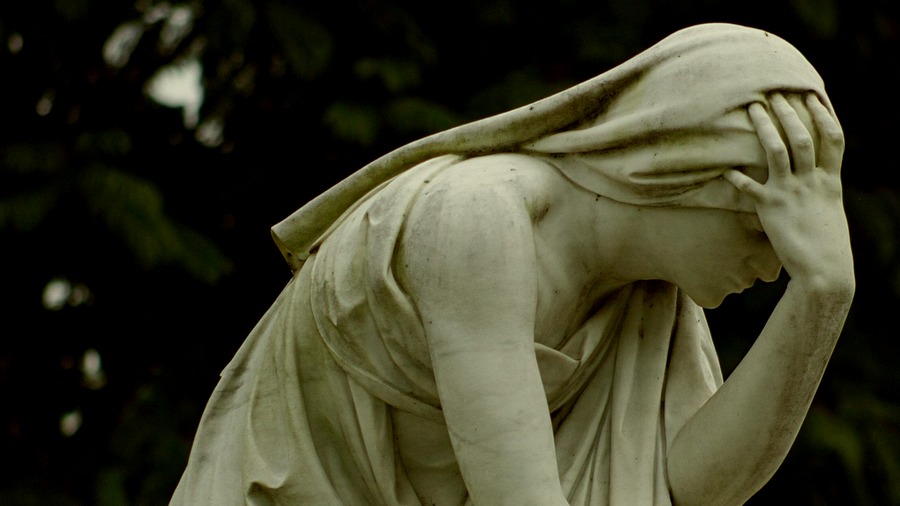


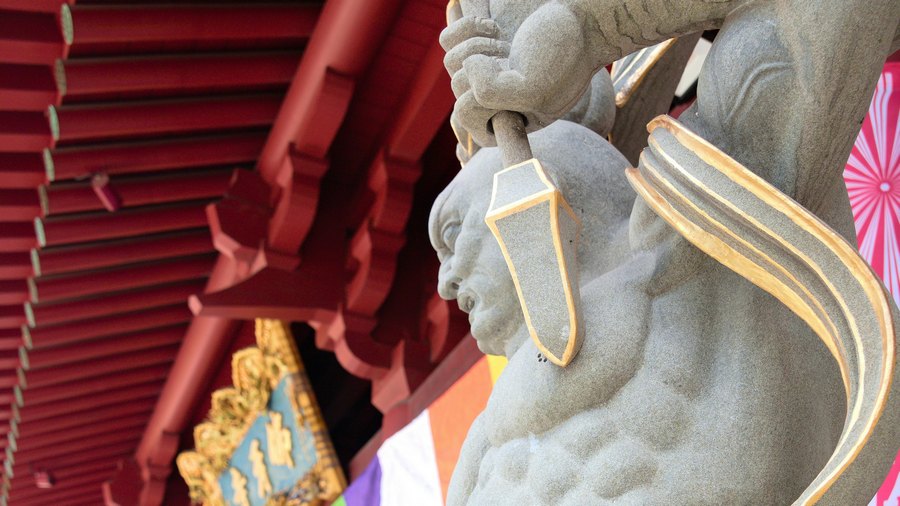





 Translations by Bhikkhu Ṭhanissaro are released under the Creative Commons Attribution-NonCommercial 4.0 Unported License. The author considers any sale, including by non-profit entities for non-profit purposes, to be ‘Commercial’ and a copyright violation. To view a copy of this license, visit the
Translations by Bhikkhu Ṭhanissaro are released under the Creative Commons Attribution-NonCommercial 4.0 Unported License. The author considers any sale, including by non-profit entities for non-profit purposes, to be ‘Commercial’ and a copyright violation. To view a copy of this license, visit the 




